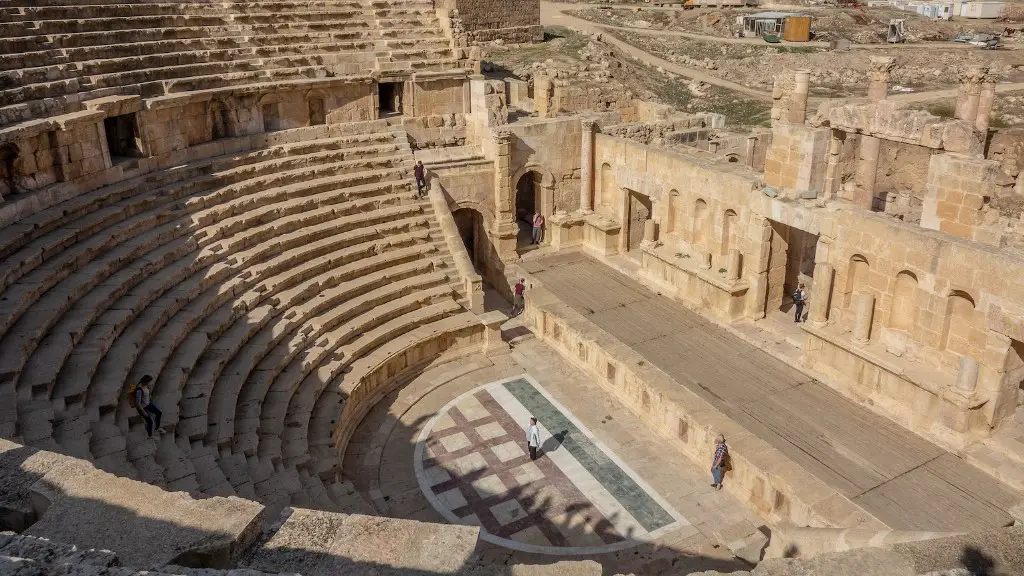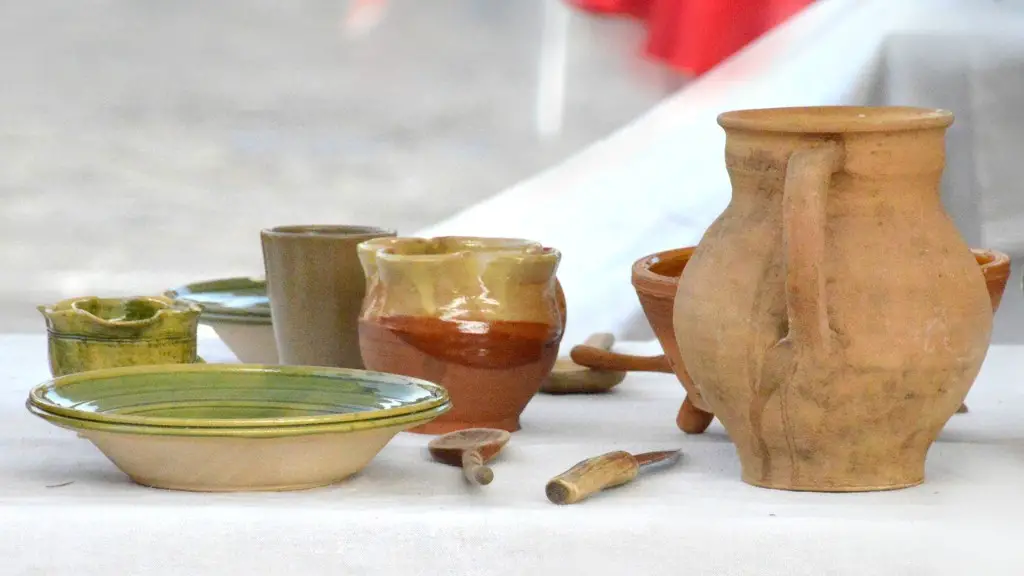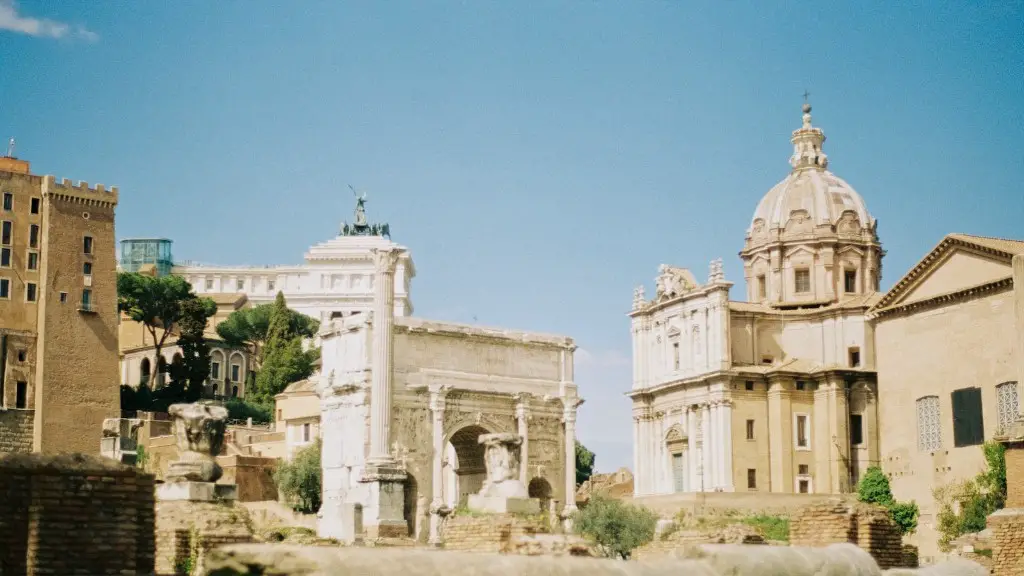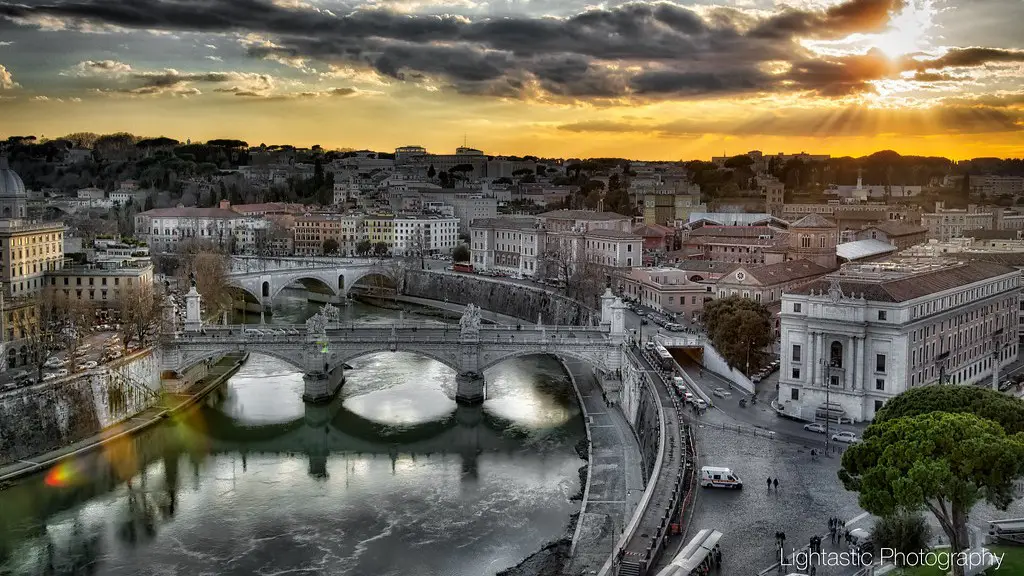Tribune was a powerful position in ancient Rome and was considered one of the most important roles in the government structure. The term tribune comes from the Latin ‘tribunus’ which means ‘magistrate’ and the position was held by both patricians and plebeians. Over the years, the position evolved and the power of the tribune increased.
During the early days of Rome, the tribune had specific duties and was responsible for supporting and protecting the interests of the plebeian citizens. This included making sure that no citizen was punished without a trial, decision and punishment by the official authorities of the state. This was done by the tribune physically intervening and stopping proceedings if it was considered unfair. The tribune had the right to announce the right to hold the assembly and the right to call people to the assembly.
Later, during the Roman Republic, the tribune had the power to propose and veto laws, which gave them considerable political power. They were also regarded as a religious official, with the right to perform certain religious ceremonies and presided over religious assemblies. The tribune had the right to impose political sanctions on any citizen and any organization they believed to be working against the interests of the Roman people. This was especially useful in controlling the power of the powerful patrician class.
The tribune was also responsible for controlling the power of the senate, by protecting plebeians from patrician interference. They were able to call a meeting of the plebeian assembly to pass the law, without having to get the approval of the senate. This was important in ensuring that the plebeians had a fair and equal chance to have their voices heard, without the interference of the patrician class.
The power of the tribune was significant in the politics of ancient Rome, as it helped to ensure that the rule of law was followed and that the plebeians had equal rights and privileges as the patricians. As such, it was an important position within the government structure, and was seen as a necessary part of the Roman system.
The Role of the Tribune in Ancient Warfare
In addition to their role in government, the tribune also had an important role to play in ancient warfare. They had a significant presence on the battlefield and took part in military operations. They served as a link between the military leaders and the civilian population, communicating orders from the commanders and ensuring they were followed. The tribune also had a responsibility to protect the safety of the Roman soldiers, and to report on any victories achieved or obstacles encountered.
The tribune also had to ensure that the treaties and arrangements agreed between Rome and other countries were carried out and upheld. They were expected to be an impartial observer and referee, ensuring that the conditions of the agreement were respected and that the interests of both sides were safeguarded. In some cases, they would even negotiate and propose terms of peacemaking on behalf of Rome.
The tribune had an important role in the aftermath of a battle, particularly in the collection and distribution of the spoils of war. They would make sure that the spoils were shared fairly between the victorious forces and that no one was unfairly advantaged. They also acted as a mediator between different sides and groups, helping to ensure that all sides satisfied their agreements.
The tribune was an important figure in ancient Rome, playing an essential role in the government, military operations, and diplomatic relations. Their role in ensuring the rights of the citizens was particularly crucial and allowed for a greater level of equality and protection for the plebeians.
The Impact of the Tribune on Ancient Rome
The role of the tribune in Rome was of great significance, not just in terms of protecting the rights of the plebeians and curbing the power of the patricians, but also in terms of asserting the authority of the Roman state. By giving the plebeians a voice within the government and military, the tribune was able to help Rome to project its power and influence both at home and abroad. This allowed the Roman state to expand its reach and grow in power, becoming one of the leading powers of the ancient world.
The tribune was also an important factor in preserving and promoting peace between Rome and its neighbours. By being an impartial mediator between both sides, the tribune was able to ensure that peace treaties and diplomatic settlements were upheld and that both sides satisfied their agreements. This was beneficial for Rome, as it allowed the state to remain at peace with its neighbours and focus on expanding its territory and power.
The tribune was also a symbol of Roman justice and fairness. By enacting laws which protected the rights of citizens, the tribune was able to ensure that justice was served and that all citizens were treated fairly. This was an important factor in ensuring the stability and continuity of Roman rule, as well as promoting a sense of civic duty and responsibility towards one’s fellow citizens.
In sum, the tribune was a powerful and influential position in ancient Rome, and played a key role in the state’s success. They protected the rights of the plebeians, curbed the power of the patricians, assisted in the conduct of military operations, preserved peace with neighbouring states, and served as a symbol of justice and fairness.
The Influence of the Roman Tribune on Modern Society
The influence of the tribune in ancient Rome can still be felt today, particularly in the structure of modern governments. The concept of having a figure who is able to represent the people and their interests in a government is still an important part of many democracies around the world, with a number of countries having positions which are similar to the tribune in principle.
These figures are important in ensuring that the interests of the people are represented on a political level, and that their rights are upheld. This is something which the tribune in ancient Rome was successful in doing, and is still a key function of such positions today. In addition, the tribune was also a symbol of justice, and their role in upholding Roman law and protecting the rights of its citizens is still echoed in modern societies.
The principles of justice and equality which were established by the tribune in ancient Rome still form the basis of many modern laws, and the concept of having a figure who is able to represent the interests of the people is still an important part of many democracies around the world. The tribune was an important aspect of Roman history and its influence can still be felt today.
The Legacy of the Tribune
The legacy of the tribune in ancient Rome lives on to this day, and their influence can still be seen in modern government and law. Their role in protecting the rights of the plebeians and ensuring justice was served is still an important part of many democracies around the world, and their ability to represent the interests of the people is still a key function of many political positions. In addition, their symbol of justice is still a core part of modern society. The tribune was an influential figure in Roman history, and their legacy can still be seen today.
The Significance of the Roman Tribune in History
The significance of the tribune in Roman history cannot be overlooked, as their role in protecting the plebeians and asserting the power of Rome had a significant impact on the later development of the Roman state. The establishment of a voice for the plebeians and the curbing of the power of the patrician class played an important role in ensuring the stability and continuity of Roman rule. In addition, the tribune was an important symbol of justice and fairness, and their ability to maintain peace and order within the Roman state was crucial in its legacy as one of the most powerful and influential states of the ancient world.
Conclusion
The tribune in ancient Rome was an important figure in terms of protecting the rights of the plebeians, curbing the power of the patrician class, promoting peace and justice, and, ultimately, helping Rome to expand its reach and become one of the leading powers of the ancient world. Their influence can still be felt today, with a number of countries having positions which are similar to the tribune in principle. The legacy of the tribune in Roman history lives on to this day, and their significance cannot be overlooked.




